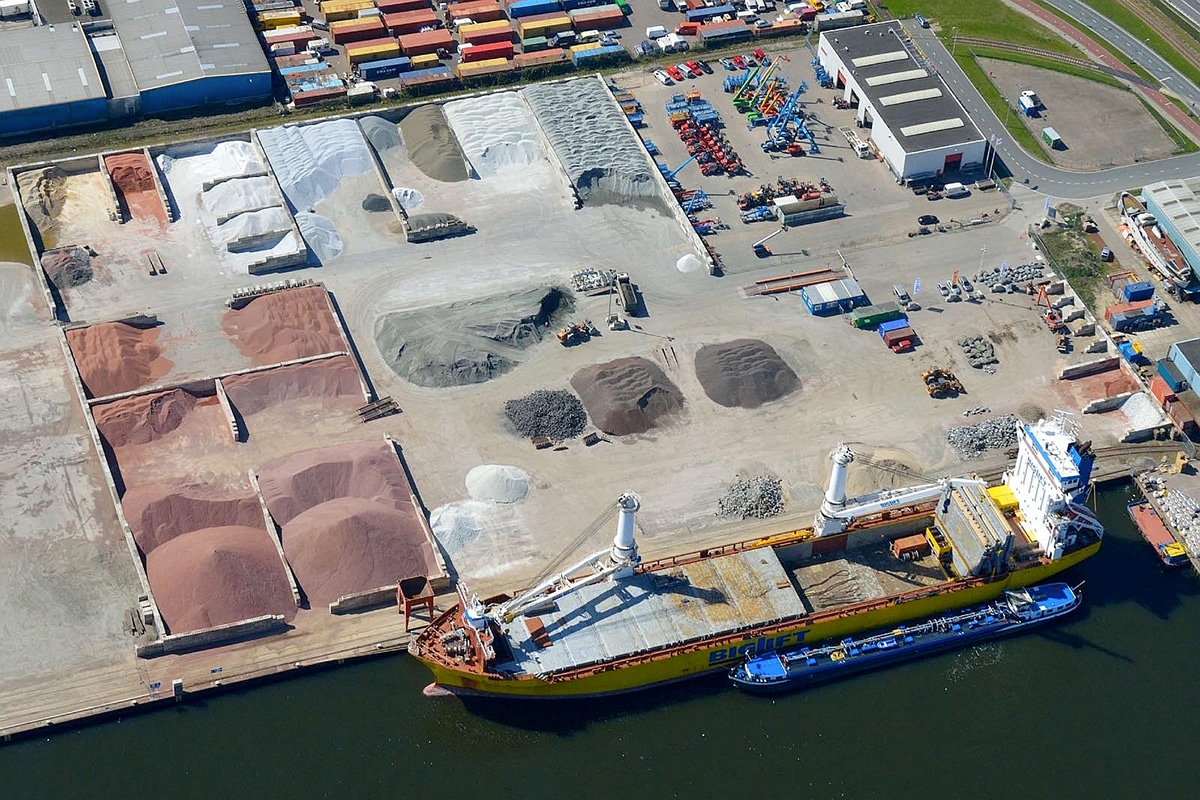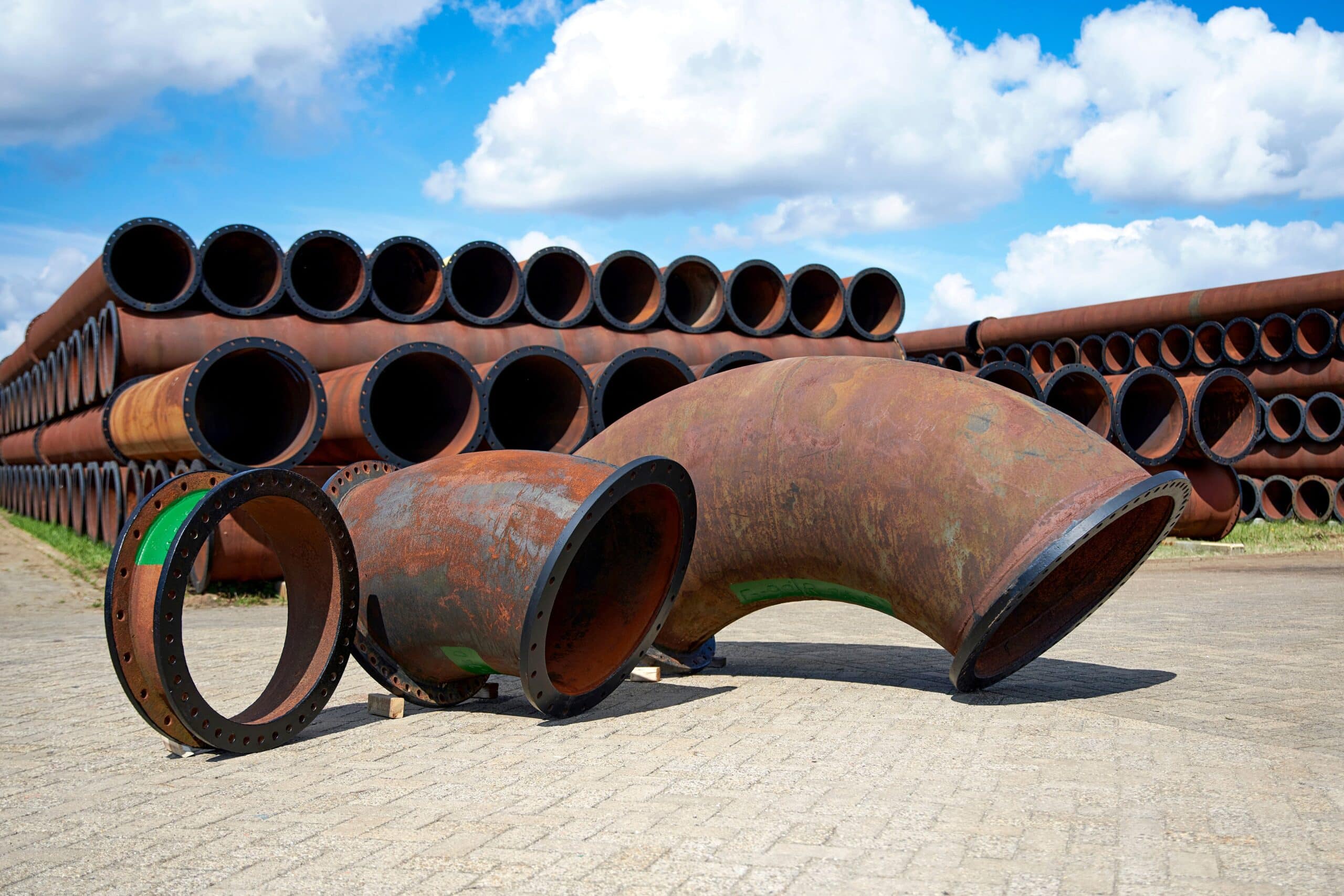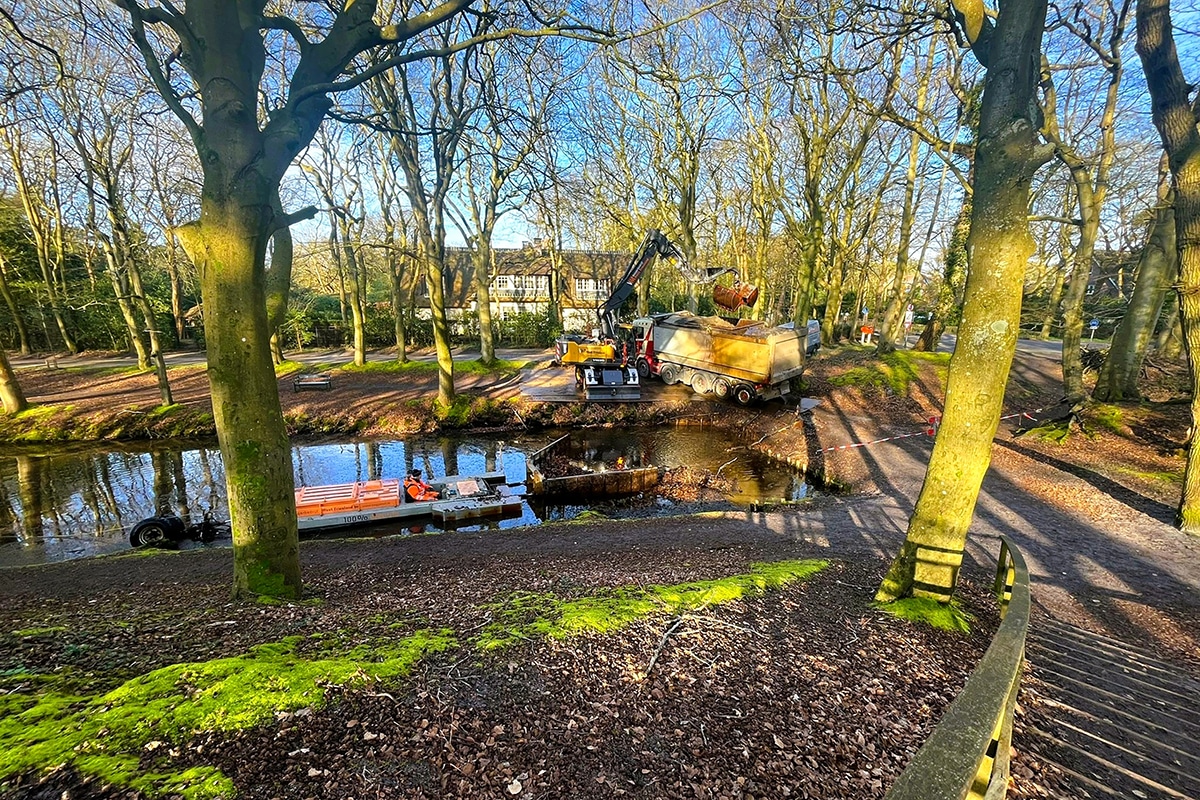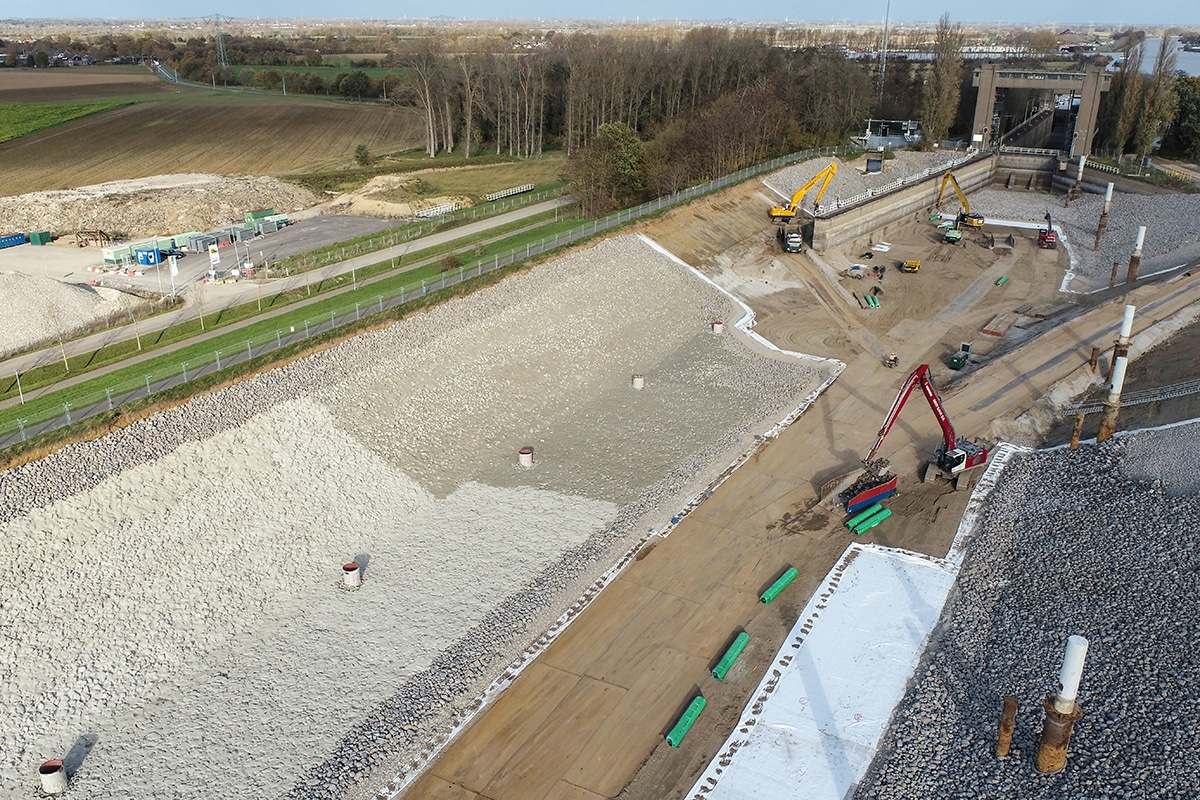
Good preparation...
...is half the battle. Since April 2018, SCHOT Infra has been working on the redevelopment of the Emmakwartier in Alkmaar. A drastic job for the neighborhood, where streets and sidewalks are being broken up to replace the sewers and construct a drainage system, among other things. The work will therefore be carried out in phases. An interview with Fred Struikenkamp of SCHOT Infra about the progress of the project and the 'unique' preparation.
The redevelopment of the Emmakwartier is part of the Open covenant Alkmaar, an initiative of three infrastructure contractors, the municipality and Stadwerk072, a company within the municipality of Alkmaar dedicated to a clean and livable city. The goal of the covenant is to encourage innovations, reduce failure costs and increase the quality of the end result. "Every infrastructure project that comes to market within the covenant is discussed in advance," Struikenkamp says. "In a number of sessions we sit down with Stadswerk072, the three infra contractors, a delegate on behalf of the neighborhood association and an engineering firm to dot all the i's during the preparation phase. On this basis, the engineering firm drew up specifications and the three infrastructure contractors could submit separate tenders. For the Emma Quarter, SCHOT Infra came out as the lowest bidder."
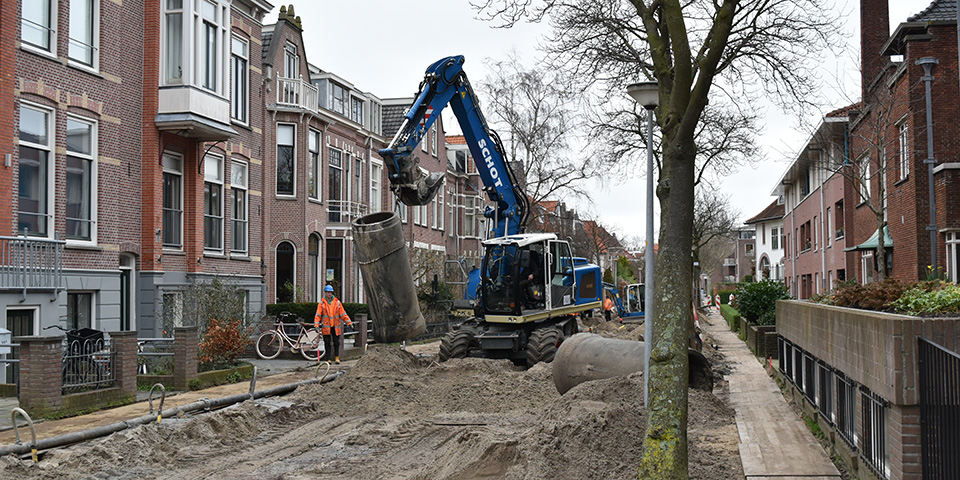
Special attention was paid to the trees that were not to suffer from the work.
Broken down into 25 phases
The Emma Quarter is the largest project within the covenant so far, according to Struikenkamp. "We are dealing with a large bevy of stakeholders, of which the residents and schoolchildren are by far the most important. The work is being done in phases to minimize inconvenience on the one hand, but also to ensure safety. For example, the fire department states that they must be able to reach a home to a minimum of 40 meters. For us, this means that we are allowed to break a maximum of 80 meters of pavement at a time. The entire work was thus split into 25 phases." According to Struikenkamp, the challenge in the beginning was mainly in the tight streets with many cables and pipes underground, trees that were not allowed to suffer from the excavation work and the accessibility of the school. "Later in the project, we had a little more space. Traffic measures were also an issue because of the one-way roads in the neighborhood."
Currently, the project is in its completion phase. "To date, everything has gone perfectly according to schedule. Thanks to the good preparation from the covenant, the work was well on track from the beginning. That is bearing fruit in the execution," Struikenkamp concludes.
